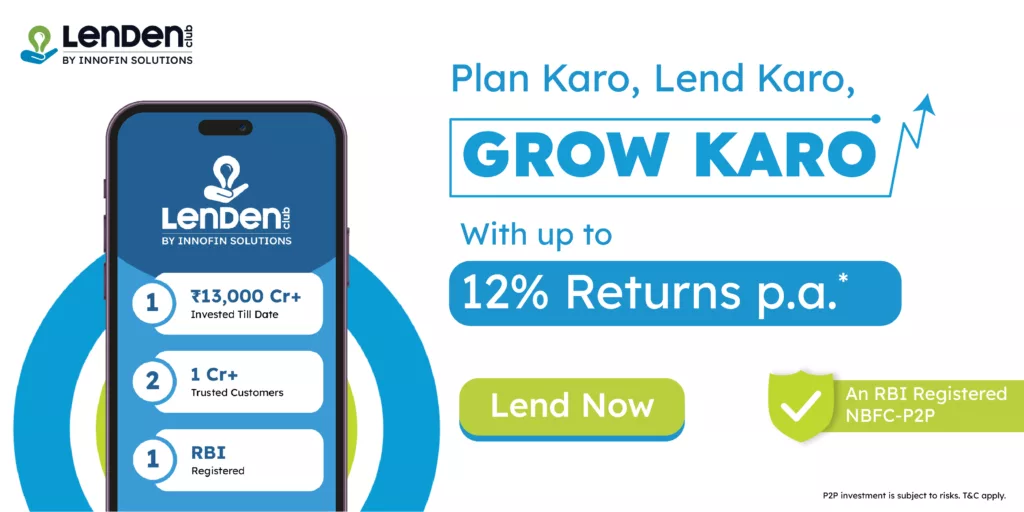Best assets to invest in India

Smart investors in India are constantly on the lookout for the best possible investment opportunity. In the way, they can get the maximum possible return in a fixed time period with minimum risk involved. Some investors do it for financial freedom or financially independent and security, whereas others do it to attain their investment goal.
The investment options you should choose should depend on your risk appetite, investment horizon, financial goals, and liquidity needs.
Read: Online investment platforms in India
However, it is very difficult to find a plan which is consistent with high returns and has relatively lower risk.
The risk to return ratio is usually to be directly proportional to each other, which means the higher the risk involved, higher the chances of high returns. In India, investment options can be mainly classified into two categories, financial and non-financial assets.
Then further classifying them into market-linked securities such as mutual funds, live stocks, etc. and fixed income products like Bank FDs, Public Provident Fund (PPF), Bank RDs, etc. Non-market-linked assets consist of peer to peer lending, gold investment, real estate, treasury bills, etc.
Check out: Monthly income plan
In the process of choosing your best investment plans it is important to make the risk profile of the investment according to the risk appetite of the investor before investing in best investment apps options. Some investments which have a high risk profile are able to provide profitable and high returns compared to other assets on the market.
By the right research and investing in the best options possible in India, you can not only achieve your financial goals, but also create a financial cushion for your future self and live securely. This is why, as per their risk appetite, investors find the best possible investment for them to multiply their money.
Read: Best investment plan for 5 years in India
Lets see the top investment options in India that can help you achieve your financial goal.
| Instrument | Type | Risk | Tenure | Interest p.a. |
| Peer-to-Peer lending | Alternative Asset Class | Low – Medium | 3months – 5 years | 10-12 %* |
| Direct Equity | Market-Linked Return | High – Very high | Liquid | N/A |
| Mutual Funds | Market-Linked Return | High | 6months – 10 years | N/A |
| NPS | Market-Linked Return | Mid – High | 5-75 years | 13.20% |
| PPF | Fixed Return | N/A | 15years-< | 7.9 % |
| Real Estate | Market-Linked Return | High | N/A | N/A |
| Gold ETF | Alternative Asset Class | Low – Medium | 5 years – 8years | 10-22% |
| RBI Bond | Fixed Return | Low | 6 years < | 4-8 % |
| Post office | Fixed Return | N/A | 5 years | |
| Bank deposits | Fixed Return | Low | 6moths< | 4-7 % |
* The stat regarding Peer-to-Peer lending is specific to LenDenClub. Therefore, it is not a representation of the Peer-to-Peer lending industry.
Lets looks at their working
Peer to Peer: P2P lending platform connects lenders directly with borrowers, without any financial institutions as middle man. This makes it possible for P2P platforms to give higher earning returns than bank deposits. The invested funds get dispersed between several borrowers reducing the risk involved.
Read: Best investment plan for 1 year in India
Direct Equity:
In today’s day and age, there are many online broker platforms which offer commission free trading in ETFs. Equity is a great way to start your investing journey. Buying individual equity stocks of the companies which are listed or unlisted on the stock exchanges is known as Equity investment. You can get dividend and capital gains returns from your direct stock investments. The performance or return of stocks depends on factors such as market condition, company’s performance, etc.
It’s a high risk to reward type of investment. So, even if you’re starting with a relatively smaller capital you need research and have an understanding of the stock market.
In today’s day and age, there are many online broker platforms which offer commission free trading in ETFs. Equity is a great way to start your investing journey. Buying individual equity stocks of the companies which are listed or unlisted on the stock exchanges is known as Equity investment. You can get dividend and capital gains returns from your direct stock investments. The performance or return of stocks depends on factors such as market condition, company’s performance, etc.
It’s a high risk to reward type of investment. So, even if you’re starting with a relatively smaller capital you need research and have an understanding of the stock market to get and kind of returns.
Read: Most profitable business in India
Mutual funds:
A mutual fund is a financial vehicle that pools assets from shareholders to invest in securities like stocks, bonds, money market instruments, and other assets. Mutual funds are operated by professional money managers, who allocate the fund’s assets and attempt to produce capital gains or income for the fund’s investors. A mutual fund’s portfolio is structured and maintained to match the investment objectives stated in its prospectus.
Read: Difference Between NRE & NRO Account
NPS:
National Pension Scheme is a retirement benefit Scheme by the Government of India to facilitate regular income post retirement to all the investors. Pension Fund Regulatory and Development Authority is the governing body for NPS.
PPF:
One of the most popular and safe investments for your long-term goals, Private Financial Fund (PFF). Originally introduced as a retirement investment plan for people who are self-employed, it’s a popular with long-term investors, because:
- Helps in Tax Efficiency: Claim up to 1.5 lakhs deduction under section 80C up for ULIP investments. Also, the maturity received is tax-free.
- Liquidity: borrowing from the accumulated corpus within the first 5 years of the account. After 5 years withdrawals partially are allowed
- Risk-Return Mix: It’s a relatively Low-risk investment with a market-linked rate of interest.
- Investment Period: Minimum 15 years, after that account batches can be extended upto 5 years.
Read: Best investment plan for middle class family in India
Real Estate:
Real estate has become a popular investment vehicle over the last 50 years or so. some of the options for best individual investors, along with the overview of why to invest. If you invest in rental properties, you become a landlord. Being the landlord, you’ll be responsible for things like the mortgage, taxes, and house insurance, maintenance of the property, finding tenants for rent, and dealing with any problems
Gold ETF:
Compared to physical gold investments, gold ETFs are known to be less expensive and offer an investor the flexibility to purchase as low as one unit of gold. Gold ETFs are units representing physical gold which may be in paper or dematerialised form. One Gold ETF unit is equal to 1 gram of gold and is backed by physical gold of very high purity. Gold ETFs combine the flexibility of stock investment and the simplicity of gold investments.
Read: Smart investment plan
Industry experts say, investors have a boon looking at investing in Gold ETFs as the purchase is in electronic form, and the investor does not have to worry about the storage and security of the gold. Hence, the investor is saved from the hassle of storage and security and the worry of gold purity.
RBI Bond:
Government bonds issued are considered one of the safest investments. In fact, they are sometimes referred to as risk-free and a government has the option (in theory) of printing more money in order to cover its debts. Therefore, it’s considered among the safest investments around but often provides the lowest returns
Post office: The Post Office Saving Schemes include several reliable products and offer risk-free returns on investment like POMIS, Kisan Vikas Patra, Senior Citizen’s Savings Scheme, etc. Around 1.54 lakh post offices spread all over the country operate these schemes. For example, the government operates the PPF scheme via 8200 public sector banks and the post offices in each city.
Read: How to Double Your Money
Bank deposits:
A facility offered by the banks where recurring deposits and also provides Interest on it at maturity.
In Bank Fixed or Recurring Deposits, you are required to invest a sum amount every month or 3 months depending what plan you choose with the bank for a specific term and at an existing rate. At the end of your tenure you will receive your principal amount with the compound interest added over the term.
Conclusion
Nowadays, there are many investment options available in India. Unlike a few years ago, when FDs and equities were the popular choices among people, various new-age investment options like P2P lending have emerged. The best part about these investments is that they have the ability to balance the risk and returns, which most investors find hard to achieve.
On top of that, online marketplaces like LenDenClub further simplify the process for investors. Let us see how –
- A family of more than 2 million people
- AI-powered Auto investment
- Allows diversification and reduces risk
- Screens borrower’s profile through 200+ data points to reduce the risk of default.
- FMPP investors have earned upto 12% p.a. since launch
- Market-risk free returns
- Safe and Secure transactions using the ESCROW mechanism.
Hop on the bandwagon with 2 million+ investors. Register now!
*P2P investment is subject to risks. And investment decisions taken by a lender on the basis of this information are at the discretion of the lender, and LenDenClub does not guarantee that the loan amount will be recovered from the borrower.

